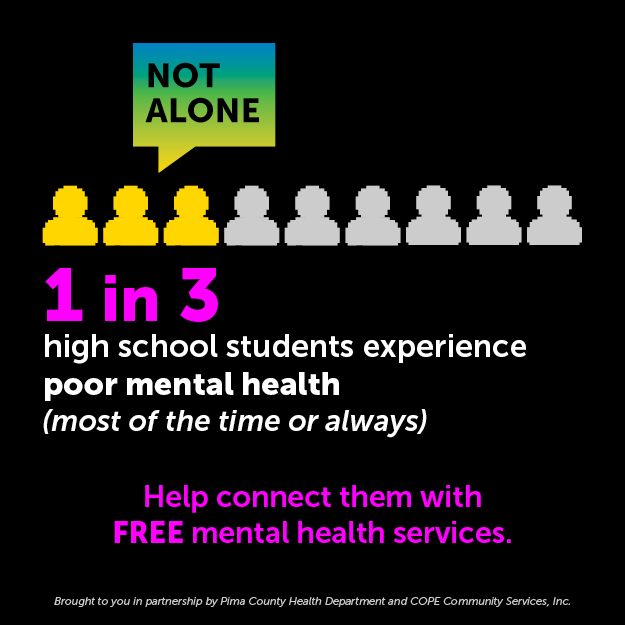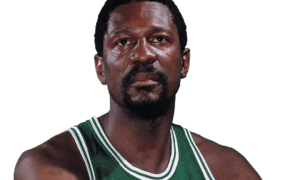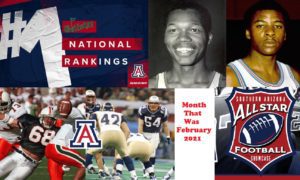Ernie McCray
EDITOR’S NOTE: Former Tucson High School and University of Arizona basketball standout Ernie McCray is a legendary figure to Tucsonans and Wildcat fans. McCray, who holds the Wildcats’ scoring record with 46 points on Feb. 6, 1960, against Cal State-Los Angeles, is the first African-American basketball player to graduate from Arizona. McCray, who now resides in San Diego, earned degrees in physical education and elementary education at Arizona. He is a longtime educator, actor and activist in community affairs in the San Diego-area. He wrote a blog for TucsonCitizen.com before the site ceased current-events operations last year. He agreed to continue offering his opinion and insight with AllSportsTucson.com. McCray also writes blogs for SanDiegoFreePress.org.
[rps-paypal]
[ezcol_1half id=”” class=”” style=””]
(This poem was written to kickoff the 1st Annual Social Justice and Education Conference at San Diego City College two weeks ago)
I look around me,
breathing in deeply
as I reflect on the totality
of what I see.
Before me, a man lays sleeping
on a downtown street
that jumps with a crisp
four/four time Hip-Hop beat,
bouncing from an upbeat retreat,
where folks hang out,
chillaxed to the max
as it’s the “Thank God it’s Friday,”
day of the week.
The man is wrapped up in a
tattered army sleeping bag lined with a bed sheet
that had long ago given up on the idea of being a sheet
and the forecast calls for snow or sleet
and a passerby pinches her nose with her
forefinger and her thumb,
thinking why doesn’t somebody arrest this bum?
Empathy, I’m thinking on the run,
is like it was once said of love,
something there’s just too little of.
And why?
Why do we look at others with blind eyes?
Why is it so hard to empathize?
I mean, okay, let’s try crime, black crime, on for size.
A black boy burglarizes a business enterprise
and we, not to excuse the felony,
focus only on the villainy,
not willing to ponder even minimally
that the boy is growing up in a hood
[/ezcol_1half]
[ezcol_1half_end id=”” class=”” style=””]
Ernie McCray during his Arizona playing days. His 46 points in a 1960 game remains a school record (University of Arizona photo)
[/ezcol_1half_end]

Flickr Creative Commons photo
[ezcol_1half id=”” class=”” style=””]
that’s been allowed to crumble like rotting antiquities,
overburdened with poverty,
with gangs every where he can see,
basking in their notoriety,
dispensing, with ease, tyranny
and brutalities and tragedies
and agonies and depravities
and abnormalities and mortalities
and vandalizing properties,
intimidating rivals and their families.
Where this boy lives
job opportunities are a rarity;
taxi-cabs passing you by a formality;
“Si Se Puede” is seen as an irrationality.
And the children in the community
grow up with the belief
that what they’re seeing
is life being lived normally.
[/ezcol_1half]
[ezcol_1half_end id=”” class=”” style=””]
[/ezcol_1half_end]
Oh, mayhaps, I speak exaggeratedly,
to some degree,
but the point to be made,
it appears to me,
is that a boy raised up in an inner-city ghetto
might be disposed to steal a pack of cigarillos.
But anyone who has empathy,
no matter how intimidating and unseemly this teen happened to be,
would say “No” to an officer of the peace
bypassing judge and jury
and executing him in the middle of the street.
Everyone has sons they love.
Everyone desires dignity.
I look behind me,
this time breathing in deeply
as I reflect on the totality
of what I know and what I’ve seen.
I see the abandonment of blacks
as practically an American decree,
going as far back as anyone can see,
evolving, over time in our history,
into too many of our white brothers and sisters
taking flight at the very sight
of black folks
moving next door to their residency,
planting “For Sale” signs in their front yards like flowers and trees.
And, now, they look at the debris
and go on and on
on the radio and in print and on social media and TV
and over wine and tea
about how the people they left behind
have no virtues,
no morality
and need to simply, perhaps,
“pull themselves up by their bootstraps.”
No empathy for the misery,
no acknowledging that millions of blacks
have done just that.
But empathy would tell one that
it’s not as simple as that,
that when some folks feel trapped
they can’t put on some magical thinking cap
that would lead them to even imagine
a life beyond the one that has wrapped
itself around them like a death trap.
Empathy would tell one that
it’s a straight up fact
that we are, basically, creatures of our habitat.
Too bad there’s not an app
to remind us of such as all that.
And so I fantasize
that we can learn, as a society,
to empathize.
Living in harmony
is a necessity
if we as human beings are to survive
and keep hope alive
and ever come to realize
a just world, where what matters
is all our lives,
the rainbow of lives:
Black lives. White lives. Brown lives.
Yellow lives. Red lives.
All opening their ears and eyes
to each other’s cries,
each other’s sighs,
each other’s do or dies
each other’s oh mys,
becoming wise
to each other’s views,
and what it must be like to walk in each other’s shoes.
It’s for the children
that we must pay these dues,
so that down the line,
following our clues,
they’ll have something to use
to continue to pursue
the making of a world of love
where equality is no longer a fantasy
but a reality –
a world that’s yet to be seen.
A world of which a great man once dreamed.
A world of empathy.































